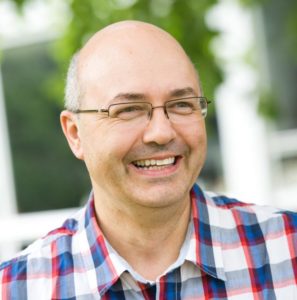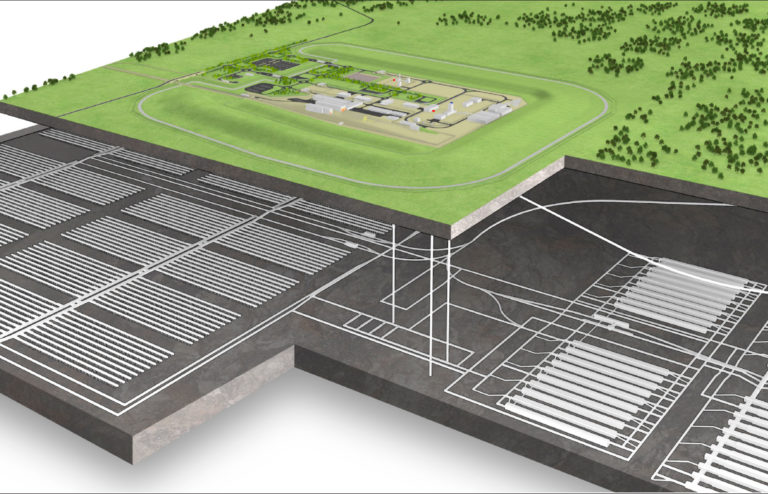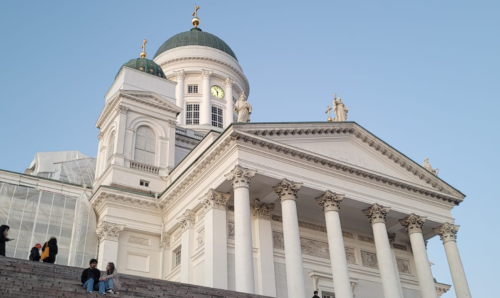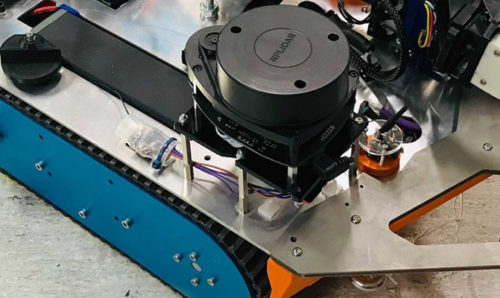Guest post – How UoM is addressing the long-term questions of nuclear waste
Research impact and institutes 21st August 2020
This week, Prof Francis Livens, Director of the Dalton Nuclear Institute, tells us about the new Radioactive Waste Management Research Support Office.

“Around 20% of the UK’s electricity is generated by nuclear power plants, providing a low-carbon option, which could contribute further to a net zero future. However, for the decades these plants have been running, we have not had a definitive solution to dealing with the radioactive waste they produce, and we now have over 60 years’ worth of it.
Not all of this waste is ‘higher activity’ waste – i.e. the most radioactive – but the bit of it that is will remain hazardous for millennia. The UK Government plans to dispose of this material in a geological disposal facility (GDF) and has tasked Radioactive Waste Management Limited (RWM) to implement this multi-billion-pound extensive engineering project.
Although this waste represents a relatively small proportion (less than 10%) of the total waste by volume, it is the more hazardous material and the intention is that it will be buried deep underground to isolate and contain it for hundreds of thousands of years. In an operation taking roughly a century, excavated tunnels and vaults will be created at a depth of between 200-1000m, where the waste will be emplaced, backfilled, sealed and left for potentially hundreds of thousands of years.
Academic expertise

Before digging can commence, a host community must be found for the site and, in a process that is unique within government, communities will consent to host it in return for long term economic benefits. It is therefore of utmost importance that RWM presents a safety case that satisfies both the regulator and the host community.
University-based research is vital in this as establishing a safety case for the project raises scientific questions such as:
- how do the different waste types behave over time? What is the deep geology and the hydrogeology in the potential host area/s?
- when and how will the waste containers degrade?
- does the groundwater move and if so, how?
- how might the underground environment change over time and as waste is emplaced the facility?
RWM must also understand the societal and socio-economic aspects of geological disposal, including how public trust and confidence can be developed and sustained with potential host communities. Furthermore, working in partnership with these communities will require an understanding of how research and research findings can be effectively communicated to both expert and lay stakeholders.
A new generation of nuclear researchers

In addressing these questions academic expertise is needed – in social science, materials, the underground environment, groundwater, radioactivity, movement of radioactive materials – and that means RWM must have strong relationships with universities and university research must align with RWM needs.
To this end a new Research Support Office (RSO), based at The University of Manchester, has been launched. Hosted by the University’s Dalton Nuclear Institute in collaboration with the University of Sheffield, and headed by Professor Kath Morris, this Office will be in a unique position to help strengthen the relationship between the academic community and the work of RWM.
The two universities and RWM will work together to build an academic community focussing on important knowledge gaps and examining the latest science and technology to support geological disposal. The Office will coordinate applied social science research, working with The Beam nuclear and social research network, to explore the societal and socio-economic aspects of geological disposal, most obviously how public trust and confidence can be developed and sustained with potential host communities.
Considering the long-term nature of the project, another crucial element of this work will be the development of the next generation of researchers, ensuring they are equipped with the relevant scientific expertise around geological disposal, as well as an understanding of the social issues involved.
The importance of these researchers cannot be overstated – the first waste is likely to be going into a GDF in the second half of the 2040s and it will certainly remain operational for the rest of this century, quite possibly well into the next.”
To begin defining research priorities and sharing expertise, the RSO will hold a series of online events from 16 to 18 September 2020. These are open to all UK-based researchers and stakeholders – visit the website and register to reserve a place.
If you enjoyed this post, be sure to subscribe on our homepage to keep up to date with the latest posts from The Hub.
Words – Prof Francis Livens
Images – Dalton Nuclear Institute
Dalton Cumbrian FacilityDalton Nuclear InstituteNuclearNuclear Physics




